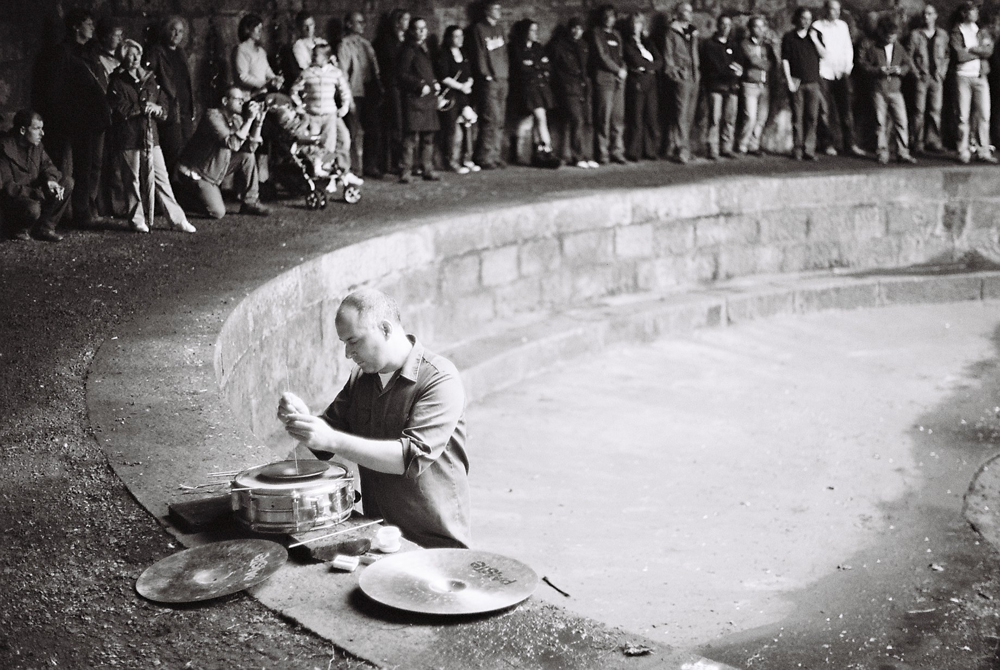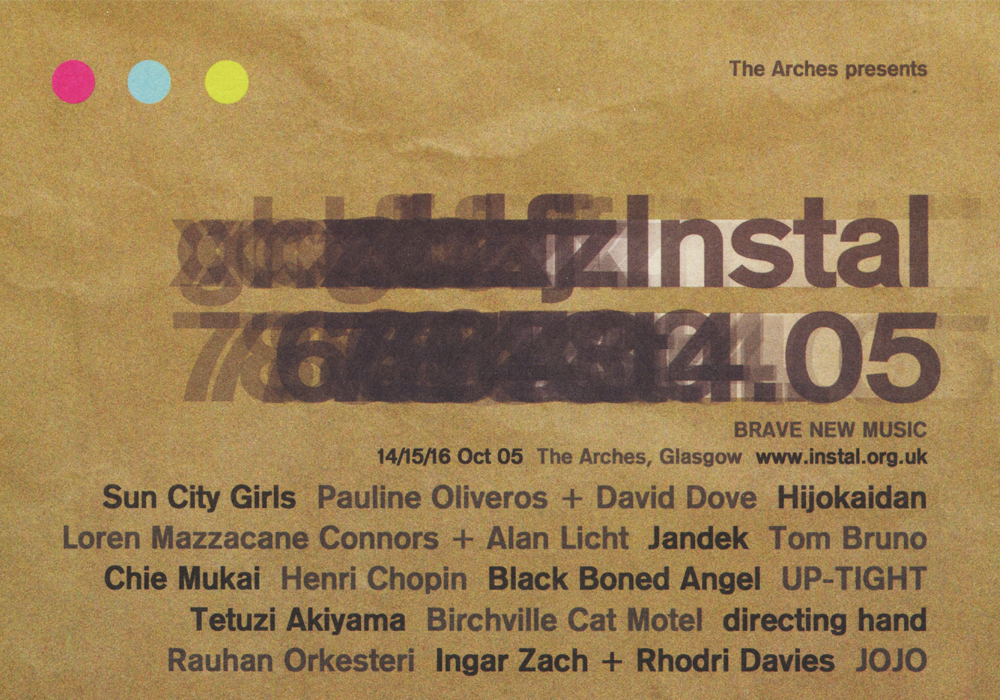
SOLITON(E) STAR, RESONANCE REGION 1A [ZERO-TIME SONIC MIRROR]
Catherine Christer Hennix
Complexly interacting colossal drones by the creator of some of the most legendary yet least heard music of the 70’s.
Arika have been creating events since 2001. The Archive is space to share the documentation of our work, over 600 events from the past 20 years. Browse the archive by event, artists and collections, explore using theme pairs, or use the index for a comprehensive overview.

Complexly interacting colossal drones by the creator of some of the most legendary yet least heard music of the 70’s.

4 days of performances, discussions, workshops, screenings with mutant dancers, prison abolitionist poets, transfeminist revolutionaries, haunted noise, science fiction, sex worker resistance, crip erotics, radical pornography and militant fiction.

Autobiographical detail becomes a lens to reflect and refract the deepest aspects of personal and social life in Delany’s ground-breaking non-fiction writing.

One of the great experimental films. A 60 minute, three part riddle that maybe approximates our intellectual development by moving from imageless words to the recognition of silent images and the learning of simple tasks and finally a serenity and acceptance of death.

Nothing if not repetitive, film is founded on the incremental succession of minute difference. But how does repetition of the same play out, and is it a tool to comment on the standardising repetition of the mass media?

Disused railway turning circle at east end of Union Terrace Gardens, a historically public space at the centre of a regeneration land-grab for the private gain of a local petro-chemical magnate.

Investigate film as language, via the language of film reduced to the basic units of film and language. A film as text in which each frame is a single word.

A Performance exploring the nature of acousmatic listening; sound removed from visual context and understood for it’s own properties.

Open community meeting to discuss some of the prevalent concerns impacting the ballroom community.

How can we imagine bodies not as an end in themselves, but as a medium through which we can become one another’s means?

To Rococo Rot member Robert Lippok performing for the first time in the UK with his solo project.

A cast of pioneering spirits over an expanded three day festival including Jandek (one year on from his first ever show at INSTAL 04), JO-JO, Tetuzi Akiyama,Tom Bruno, Pauline Oliveros, a legendary Hijokaiden performance and Henri Chopin.